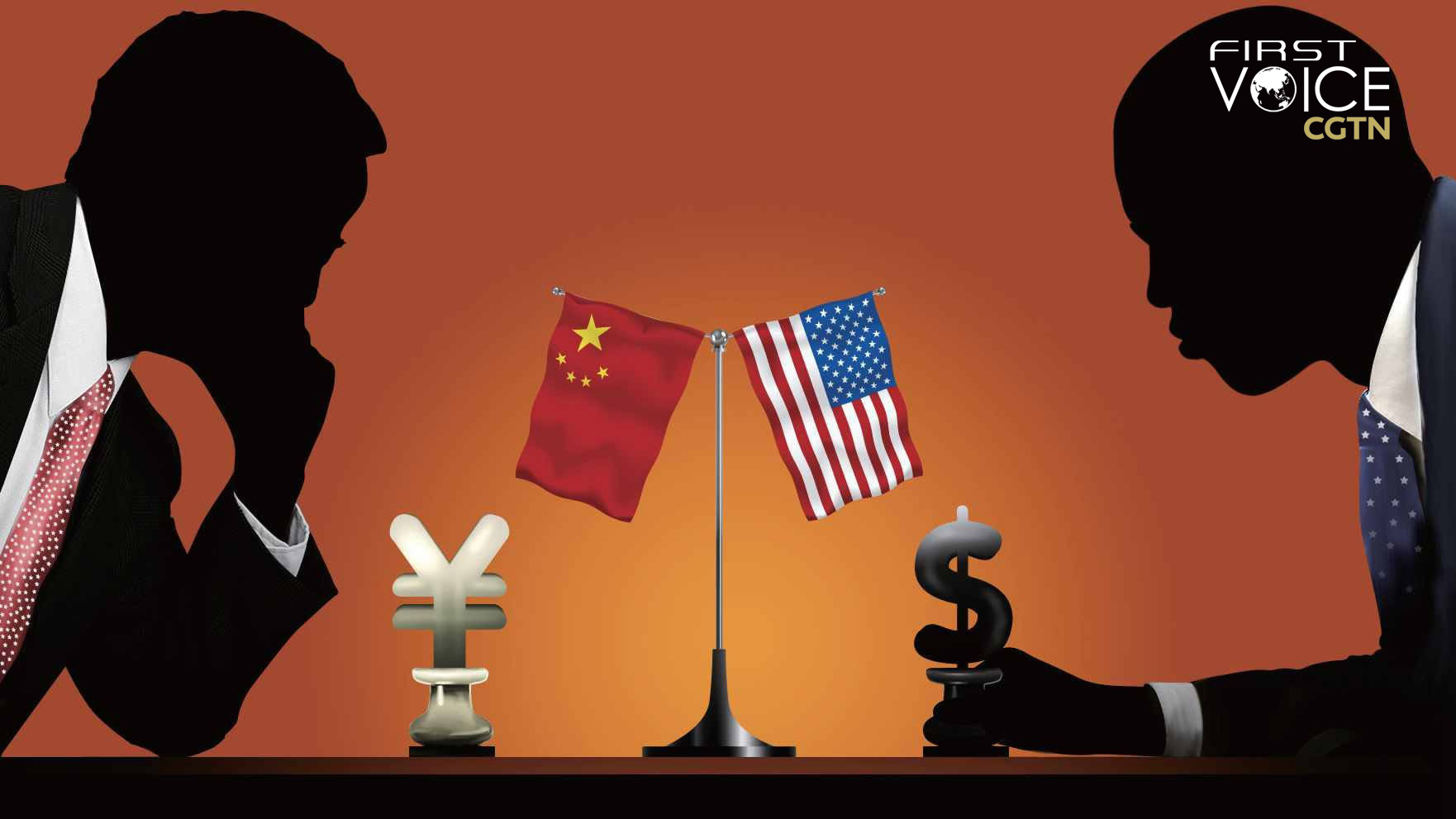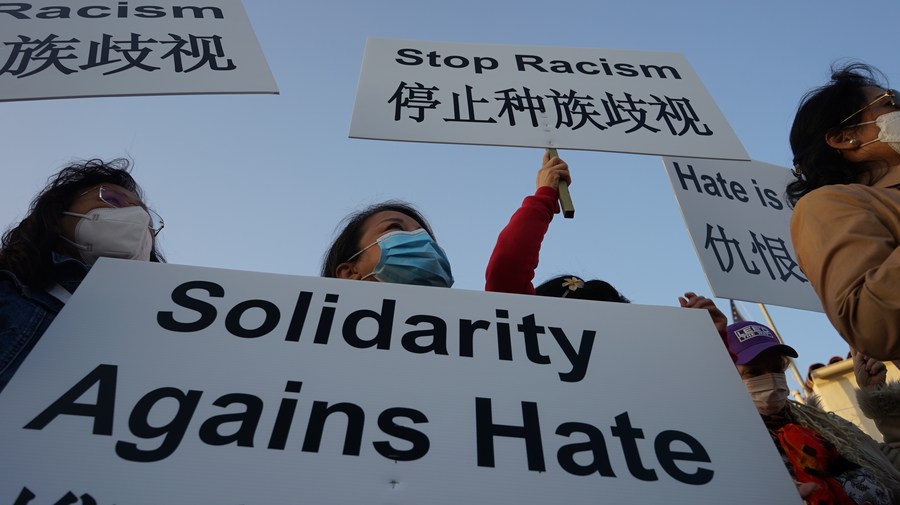
Editor's note: CGTN's First Voice provides instant commentary on breaking stories. The daily column clarifies emerging issues and better defines the news agenda, offering a Chinese perspective on the latest global events.
When a country is divided domestically, finding a common enemy is a time-tested way to bring people together. This is the transparent reason why the deeply troubled and divided U.S. has painted China as a boogeyman over the past few years.
This may be good domestic politics, but detrimental diplomatically.
On September 10, Chinese President Xi Jinping and U.S. President Joe Biden had a phone conversation in which both sides characterized as an attempt to make sure both nations do not spiral into confrontation. Xi said that both countries need to show broad vision and shoulder great responsibilities. The two countries should demonstrate strategic courage and political resolve, and bring China-U.S. relations back to the right track of stable development.
This will be a difficult challenge for Biden, who already looks weak due to the botched withdrawal from Afghanistan — an error that is exacting heavy political cost on him. The embarrassing end to the two-decade campaign in Afghanistan has diminished U.S. stand as the world's superpower, an image that the Biden administration seeks to restore.
And this anti-China trend, stirred by Biden's predecessor, is leaving lasting impact on U.S. politics. Former U.S. President Donald Trump, during the catastrophic final year of his presidency, tried to distract Americans from his unfathomable failure to protect his people from COVID-19 by blaming China for not only the pandemic, but also for all the economic problems facing ordinary Americans.
In an intensive U.S. disinformation campaign, Washington has slung shovelful after shovelful of mud at China in an attempt to denigrate and isolate the rising power. The U.S. has falsely suggested that China is conducting a genocide in the Xinjiang Uygur Autonomous Region and hinted China deliberately manufactured and leaked a deadly virus. These baseless claims serve to dehumanize the Chinese people, as witnessed by rising hate crimes in the U.S. against Asian-Americans.

People denouncing hatred against the Asian American communities rally before San Gabriel Mission Playhouse in City of San Gabriel, Los Angeles County, California, the United States, March 20, 2021. /Xinhua
People denouncing hatred against the Asian American communities rally before San Gabriel Mission Playhouse in City of San Gabriel, Los Angeles County, California, the United States, March 20, 2021. /Xinhua
But fortunately, there are signs that some authoritative figures in the U.S. have realized relations risk spiraling into a pointless war, and is starting to adjust its course. In one positive sign, the influential New York Times columnist Thomas Friedman, who during Democratic administrations offers a good window into the thinking of the foreign policy elite, wrote a column and starkly warned of the dangers of a collapse in China-U.S. ties.
"Before we pivot from the war on terrorism to the war on China," Friedman writes, "Let's really think this through." Friedman, who gives voice to the U.S. foreign policy establishment's current thinking, warned that the U.S. does not adequately understand China's intentions, and has not considered whether U.S. allies are truly willing to align against China. He asks whether burning down the China-U.S. relationship is a wise course of action when there are so many problems at home to address such as "yawning deficits in infrastructure, education, incomes and racial equity."
History shows that war is always the worst option, and there is always a better way. As the China-U.S. relationship stuck in a downward spiral, having some key players casting shadows on the current trajectory and reflecting on the approach could serve as a foundation for the administration to start changing its course accordingly and fix the relationship.
As both leaders stressed, the in-depth communication between the two countries is very important for steering the relationship into the right direction. Dialogue that focuses on genuine concerns and negotiations in good faith are what responsible nations should be conducting. For countries as influential as China and the U.S., conflicts between the two do not end well for the world. The two have responsibilities for their national interests, but they also have a responsibility for the well-being of the entire globe.
After all, the world is facing imminent dangers, including global health threats and climate change, that require the cooperation of China and the U.S. There's no time to waste on petty politics or satisfying a superpower ego. The two must start finding common ground and help the international community to move forward.
(If you want to contribute and have specific expertise, please contact us at opinions@cgtn.com.)

